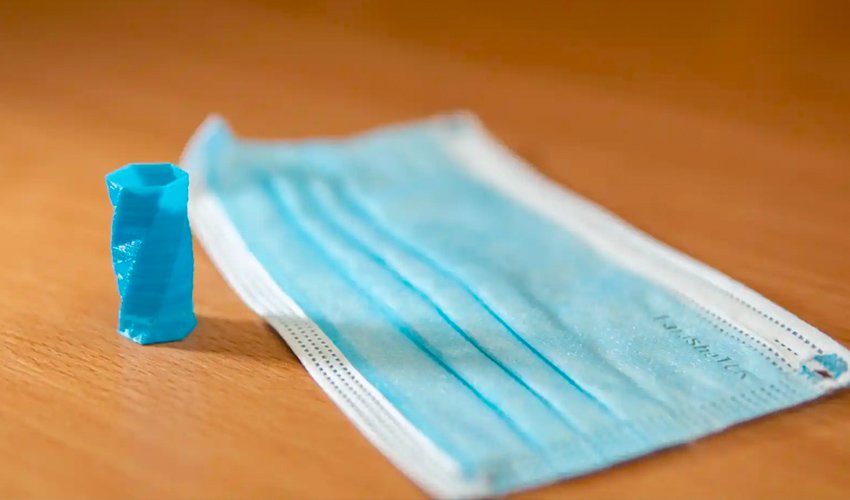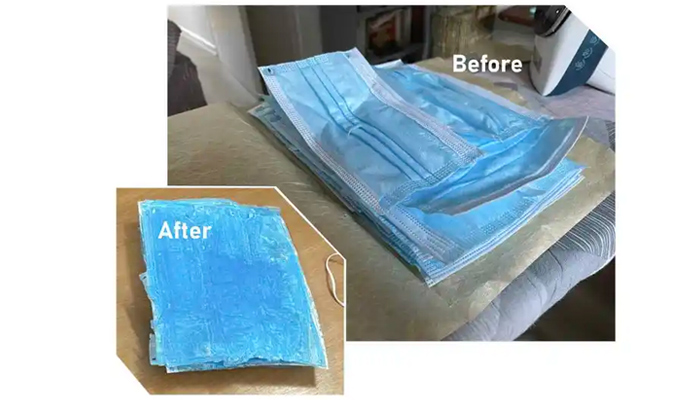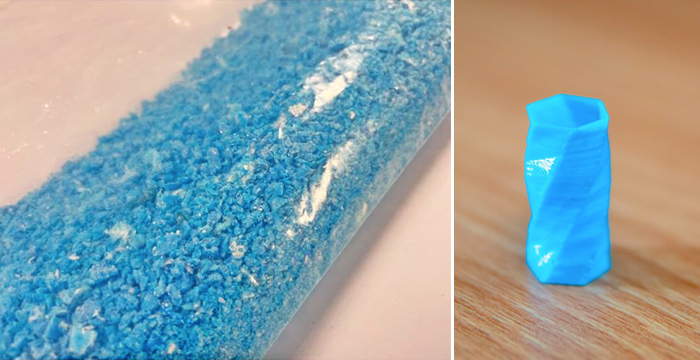University of Bristol is Recycling Surgical Masks into 3D Printing Materials

The use of surgical masks is now a part of our daily lives. But, the daily use (and discarding) of them as a result of the global pandemic has caused a significant pollution problem. However, a research team from the University of Bristol, in England, might have found the solution. The idea behind the initiative is to collect defective or unusable surgical masks before recycling them and transforming them into 3D printing material, specifically filaments. The project aims to mitigate the impact of disused PPE on the environment, while developing filaments for AM.
According to National Geographic, about 129 billion face masks are used a month or about 3.4 billion face masks or face shields that are discarded every day. This figure is shocking because the vast majority end up in the sea, on the streets or in the countryside, generating more pollution due to their plastic components. In fact, according to the Environmental Advances study, a single mask can release up to 173,000 microfibers a day into the sea. Like other everyday objects, face masks contain plastic fibers such as polypropylene that remain in the environment for decades until they finally degrade. To solve this problem, the team at the University of Bristol has studied the possibility of transforming the components of these masks into 3D printing material.

The discarded masks are transformed into sheets through a pressing process
Transforming Masks Into 3D Printing Materials
In the first tests, the team collected a number of defective masks from which they removed the ear loops and nose wire. The masks are then heated and pressed with an iron and non-stick paper to turn them into hard sheets. These in turn were then ground into fine polypropylene pellets from which the masks are made. Finally, the blue pellets are passed through a wire drawing machine that converts them into the manufacturing filament. As the initial masks had undergone a series of high-temperature processes, the researchers felt that this was sufficient to disinfect them and eliminate any possible bacteria or viruses in them.
To get the filament right for a 3D printer, the team turned to Filastruder, an open source product designed specifically by the maker community to recycle printed plastic waste into 3D printing filament. Once they succeeded in developing the filament, the researchers set themselves new challenges in the field. Among them is the possibility of processing mixed materials by treating the mask with the handles in the same process. They are also looking into large-scale process automation to foster the circular economy and oversee the distribution, collection and recycling of medical equipment. Still, it remains to be seen how this innovative idea that arises with the aim of avoiding environmental contamination of the masks evolves. In the meantime, you can find more information on the university’s website HERE.

On the left, the granules obtained from the masks. On the right, a 3D printed part with the developed material
What do you think about recycling surgical masks into 3D printing material? Let us know in a comment below or on our Linkedin, Facebook, and Twitter pages! Don’t forget to sign up for our free weekly Newsletter here, the latest 3D printing news straight to your inbox! You can also find all our videos on our YouTube channel.
*All Photo Credits: University of Bristol






